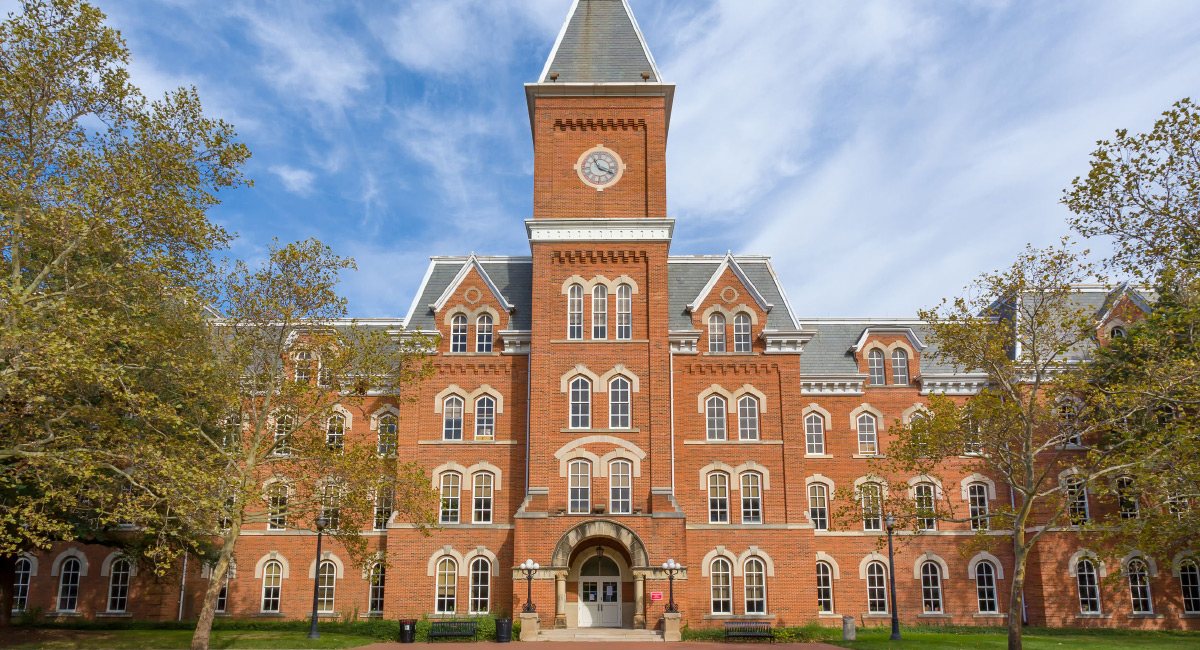What explains why some colleges are desperate for students, facing enrollment declines threatening institutional survival, while other schools are not facing falling enrollments nor related budget woes? Is the determining factor how rich the school is (does it have a high endowment or lots of alumni donations)? Or are enrollments heavily related to geography and demographics: is the school in an area of rapid population growth or in an older industrialized area—the Rust Belt—with stagnating populations and a net outflow of migrants?
Pondering these questions as it relates to my own school, Ohio University, I looked at data on enrollment at the 14 state four-year schools in Ohio. The state schools with the very best reputations, Ohio State, Miami University and the University of Cincinnati, all saw enrollment increases from 2016 to 2019. But some schools with much less stellar national reputations showed dramatic declines: more than 25% at Wright State University and 16% at the University of Akron.
One of the interesting developments is that schools that are particularly aggressive in trying to reach politically favored groups, such as first generation students, often have paid a huge price—actual falling enrollments associated with a perceived decline in quality. For example, in the first two decades of this century, Ohio University significantly lowered academic standards to get greater representation from underrepresented groups. In 2003, for example, it admitted about two top-notch students (top 10% of their high school class) for every mediocre student (bottom 50% of high school class). By 2015, however, there were actually more mediocre students (so defined) than very good ones. The result? Enrollments are falling. My school loudly proclaimed its fealty to the Holy Trinity of Higher Education: Access, Diversity, and Inclusion, dramatically downplaying Academic Excellence. Result: middle class kids from good suburban high schools started abandoning Ohio University, with enrollments off about 5% since 2016.
The irony: proclaiming a desire for “higher education for all” (or nearly all) actually leads to declining enrollments and reduced student pursuit of degrees. Nor is the reduction in enrollments irrational. A host of data show that college students with marginal academic preparation or demonstrated aptitude (as measured by high school grades and test scores) have very dubious experiences in college—high dropout rates and even if they get jobs, they earn little or no more than above average high school graduates who do not complete a four year degree.
Survey data are very clear that students primarily attend college to get a good job—college is an investment in human capital. Once upon a time, only a small minority attended college so most graduates were, relative to the total American population, relatively bright and well disciplined—likely good workers. As the proportion of college attendees passed 50%, more and more graduates now are really pretty ordinary in their talents. Holding a degree alone does not tell much—but having a degree from a highly selective admission school does.
My associate Nathan Kemmerer found data from the U.S. Department of Education’s College Scorecard showing why students clamor to get into top schools but increasingly shun mediocre to low reputation institutions. Compare the University of California at Berkeley (Forbes Best College Rank 13) with Utah State (ranking 445) or the University of Memphis (rank 640). The average earnings of a business administration graduate of Berkeley was $76,600, dramatically more than at Utah State ($48,000) or the University of Memphis ($36,200). For psychology majors, the Berkeley earnings advantage was smaller ($35,700 at Berkeley, $28,900 at Utah State and $24,600 at Memphis.) Similar sizable differentials were found for English or political science majors.
To be sure, tuition fees are several thousand dollars more for in-state students at Berkeley than at Utah State or the University of Memphis, but are still modest relative to the lifetime earnings differential expectations from a Berkeley degree. Is it any wonder that applications are still robust at the schools perceived to be high quality, like Berkeley, while lower reputation schools are suffering? For a prospective psych major at Utah State, Memphis or similar schools: would it be better to learn a skill like welding or computer coding—for less training cost and more remuneration?













